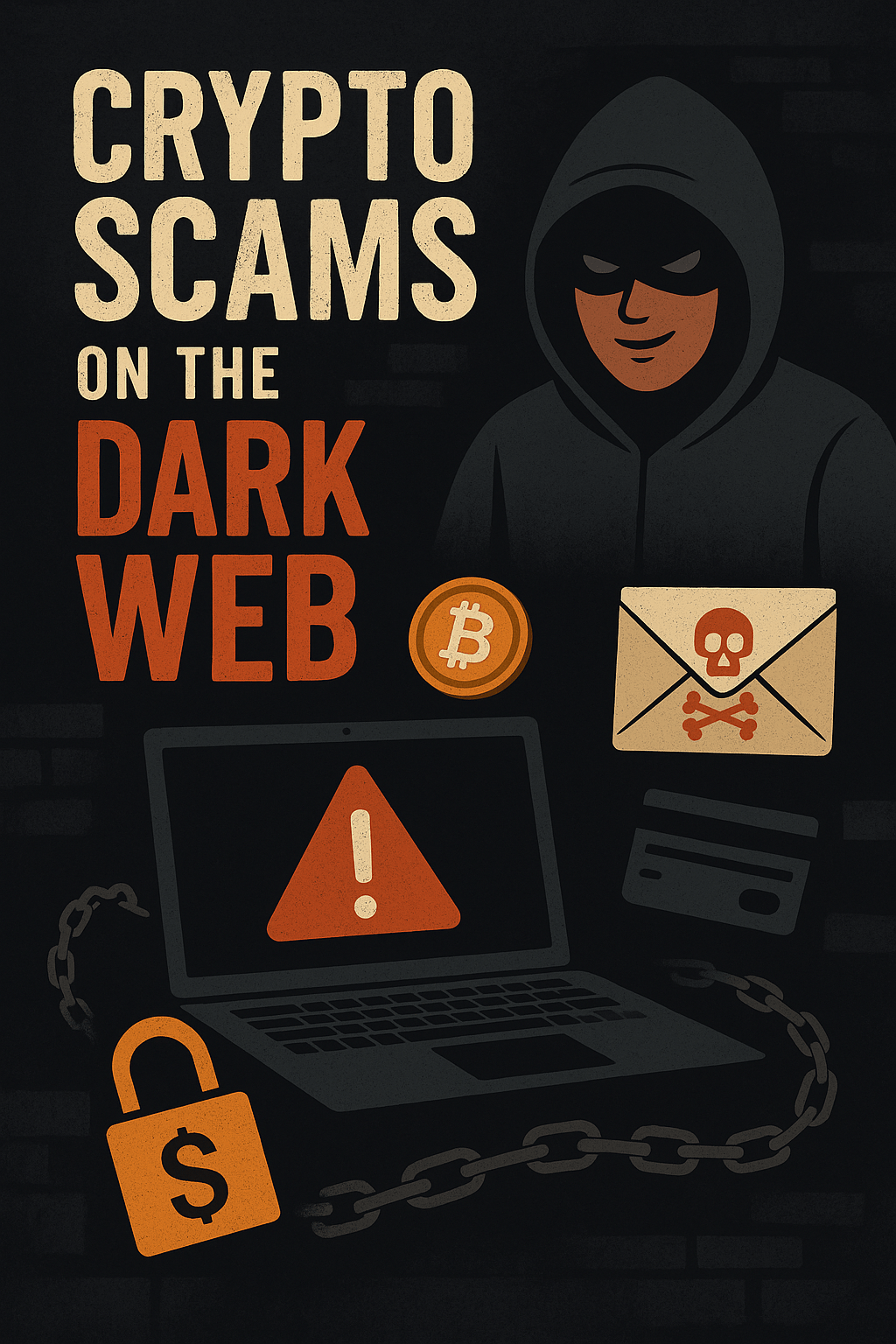The dark web has always been a place filled with mystery. Some call it a digital underworld, where people go to stay anonymous, access restricted content, and sometimes do things that aren’t exactly legal. One of the biggest things happening in that space today? Crypto scams.
With the rise of cryptocurrencies on the dark web like Bitcoin and Monero, scammers have found a new playground — and unfortunately, they’re getting really good at it.
If you’ve ever been curious about how crypto scams work on the dark web, how people get tricked, or how to stay safe, this article is for you. No tech talk. No scare tactics. Just the truth in plain English.
What’s Going on With Crypto and the Dark Web?
Let’s get something straight first: cryptocurrency isn’t evil. Bitcoin, Monero, and other digital coins were built on smart ideas about freedom, privacy, and control. But just like cash, crypto can be used in both good and bad ways.
The dark web is the perfect environment for scammers. Why? Because it gives them:
- Anonymity: They can hide who they are and where they are.
- Victims: Many users are already engaged in risky activities or don’t want to go to the police.
- Crypto payments: Once someone sends crypto, there’s no getting it back. No refunds. No chargebacks.
It’s like the Wild West out there — and it’s easy to fall into a trap if you don’t know what to watch out for.
5 Most Common Crypto Scams on the Dark Web
Let’s look at some of the most common crypto scams people face when using the dark web.
1. Exit Crypto Scams
Imagine this: you find a popular marketplace on the dark web. You create an account, deposit some crypto, and place an order. Everything looks normal — until the website disappears overnight, and your money is gone.
That’s called an exit scam, and it happens more than you’d think.
Some of the biggest dark web markets in history pulled this off. They built trust, collected millions in Bitcoin or Monero, then vanished into thin air.
How to avoid it:
Never leave large amounts of crypto sitting in dark web wallets. And remember, if a marketplace is getting too popular too fast, be cautious. Scammers often build a reputation before making their move.
2. Fake Services
Need a hacker? A fake passport? A stash of something illegal? There are hundreds of listings for those things on the dark web. But here’s the catch: many of them are fake.
These so-called “vendors” ask for crypto upfront and promise delivery or service, but once they get paid, they ghost you.
How to avoid it:
Avoid services that seem too good to be true. And just because a seller has reviews doesn’t mean they’re legit. Fake reviews are easy to buy or fabricate.
3. Impersonation Crypto Scams
Some scammers pretend to be well-known vendors or dark web celebrities. They’ll create fake profiles, clone websites, or send messages claiming to be someone famous in the scene — all to convince you to send them crypto.
How to avoid it:
Always double-check usernames, links, and wallet addresses. If someone messages you first, be suspicious, especially if they want payment fast.
4. Phishing Sites
These scams are simple but deadly. You think you’re logging into a dark web marketplace — but you’re actually on a fake version of the site. You enter your login info, maybe even your wallet seed phrase, and boom — your account is drained.
It’s like fishing for victims, and that’s why it’s called phishing.
How to avoid it:
Only use verified onion links (usually found on trusted forums or official sources). Bookmark the correct ones. And never enter private keys or seed phrases unless you’re 100% sure you’re on the right site.
5. “Help” or “Refund” Crypto Scams
Scammers are now pretending to help victims of scams. You’ll see posts or messages like: “Lost your crypto? We can recover it for you. Send a small deposit and we’ll get it back.”
Of course, they can’t — and you just lose even more.
How to avoid it:
Once your crypto is gone, it’s gone. No one can magically recover it. Don’t trust anyone offering “recovery services” on the dark web.
Why Are People Still Falling for These Scams?
It’s easy to say, “I’d never fall for that,” but the truth is, scams are designed to trick smart people. Here’s why they work so well:
- Greed: Everyone wants a good deal or fast money.
- Panic: Scammers create fake urgency so you act fast.
- Anonymity: Victims are less likely to report scams because they were doing something risky.
- Lack of experience: Many people don’t understand how crypto or the dark web works, making them easy targets.
The scammers know all this. And they’re constantly coming up with new tricks to stay one step ahead.
How to Stay Safe from Dark Web Crypto Scams
Let’s be real: the safest way to avoid scams on the dark web is not to use it at all. But if you are going to explore that side of the internet, keep these tips in mind:
- Never trust first messages. Always verify who you’re dealing with.
- Don’t reuse passwords. Use strong, unique ones for each dark website.
- Use secure wallets. Always send from wallets you control, not exchanges.
- Double-check addresses. Scammers love to trick you with one-letter differences.
- Avoid public bragging. Showing off on forums or Telegram channels can make you a target.
- Don’t mix personal identity with crypto use. Keep things separate.
- Use Monero when possible. It’s harder to trace, which means fewer third parties are watching.
Final Thoughts
Crypto scams on the dark web aren’t going away anytime soon. If anything, they’re getting more creative, more convincing, and more dangerous. What makes them extra tricky is the environment — a place where there’s no safety net, no police, and no “forgot password” link to click when things go wrong.
But with some awareness and common sense, you can avoid most of the traps. Just remember that behind every dark web listing, post, or message, there could be someone waiting to scam you out of your hard-earned crypto.




